When the levels of fats in the blood (triglycerides) and cholesterol are high, this can lead to narrowed blood vessels, which in turn can cause stroke, myocardial infarction and more. The causes of high cholesterol can be genetic or related to an unhealthy lifestyle.
In addition, lack of physical activity also contributes to high cholesterol levels. It is possible that it is a combination of all factors.
Prohibited foods for high cholesterol
- Margarine, butter - it is best to stick to the safe olive oil;
- Cakes, pastries, pies - all kinds of sweets, that are made with a lot of cream, whole milk and butter are not suitable for consumption. Emphasize on fruit pies and it is best to eat the inside part and to avoid the part saturated in fat;
- Dairy products that are high in fat - pay attention to what percentage of skim is written on the package. Dairy products are healthy, because they are rich in other substances. Therefore, it is enough to reduce the quantity and buy ones with lower fat content;
- Popcorn - an evening of a movie marathon at home with a bunch of popcorn is definitely not a good idea for cholesterol levels. Limit both popcorn and chips. Delicious pizzas are also not a good companion to healthy eating;
- Beef, duck and pork are also easy and quick ways to raise cholesterol. The skin of the chicken, although it seems very tasty, should actually be avoided. Poultry white meat is considered more dietary;
- Fried and breaded foods, white flour pastries, puff pastry are the forbidden foods for high cholesterol.
- Eggs have long been associated with some of the harmful foods for high cholesterol. However, British scientists are proving that we should not be afraid of egg consumption. Fatty foods are much more dangerous than eggs. The reason for their accusation lies in the fact that egg yolks contain a concentrated amount of cholesterol.
Scientists say that if we consume a moderate amount of eggs per week (and exactly how much your doctor will tell you), it will not have any risks.
Stick to fruit and vegetables, lean meats, legumes, nuts, fish. It is best to give up all kinds of semi-cooked products and last but not least - do moderate physical activity. Do not consume ready-made sauces such as ketchup, mayonnaise, limit juice boxes, carbonated beverages, alcohol. These are also among the foods that raise cholesterol.
Suitable foods for high cholesterol

Cereals: whole grains. Wholemeal bread, black, rye bread, sprouted wheat, rice (preferably unpeeled), wholemeal pastries. Cereals (muesli) without sugar.
Fruit and vegetables: any type of fresh, dried or preserved fruit without sugar (except prohibited). All kinds of fresh or cold preserved vegetables, boiled, stewed, roasted (except prohibited), mushrooms.
Fish: any type of fresh or frozen fish (cod, herring, mackerel, etc.); canned fish in brine or tomato sauce (sardines, tuna). Boiled, stewed, grilled fish.
Meat: chicken, turkey (without skin), rabbit, beef, game, soy protein meat. Very lean red meat.
Eggs and dairy products: Egg whites, skim milk, skim yogurt, cottage cheese, soy milk.
Fats: Extremely small amounts, preferably vegetable fats (raw oils).
Sweets: Sorbets, fruit salad, semolina pudding, rice pudding.
Drinks: Tea, coffee, low-calorie drinks, fresh fruit and vegetable juices, mineral water.
Sauces and spices: black pepper, mustard, paprika, lemon, vinegar, bay leaf, marjoram, thyme, vegetables, garlic, soy.
High cholesterol is a factor that can damage health, block arteries and lead to heart attack.
Although some risk factors can be avoided - such as unhealthy diet, overweight, smoking and lack of physical activity - other factors such as age, family history cannot be changed.
It is extremely important, experts say, to monitor your cholesterol and get tested regularly, to see a doctor, even if you do not have any symptoms. Although high cholesterol can have adverse effects on your health and even be fatal, there are no external symptoms of high cholesterol that result from high blood fats. The only way to know if you have high cholesterol is to take the necessary blood tests.
How to recognize high cholesterol
According to experts, hypercholesterolemia or high cholesterol have no symptoms. Blood tests are the only way to determine if you have too much total serum cholesterol.

However, when there is too much cholesterol in the arteries and on the walls of other blood vessels (atherosclerosis), certain complications can occur, as fat deposits can reduce blood circulation:
Chest pain - If the coronary arteries (those of the heart) are affected, the patient may have chest pain, also called angina pectoris, or other symptoms of ischemic heart disease (another term used for description of the disease).
Myocardial infarction - If the flow of blood to one part of the heart is stopped (the heart muscle is no longer irrigated with blood), then a person may suffer a myocardial infarction.
Stroke - As in the previous scenario, stroke occurs in people with hypercholesterolemia when a clot blocks blood flow to one part of the brain.
Soft, yellowish lesions or skin growths (called xanthomas) may indicate a genetic predisposition to problems caused by high cholesterol.
Many obese people or diabetics have high cholesterol at the same time. So your doctor will recommend weight loss to alleviate the condition.
That's why it's important to know which foods raise cholesterol. Avoid them to stay healthy and in good shape.
And if you want to eat healthier, check out our:

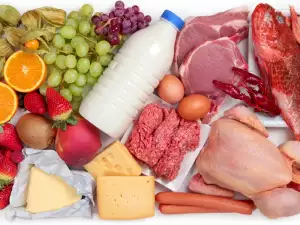



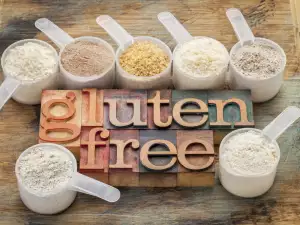

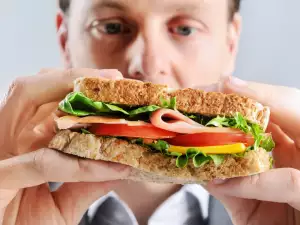

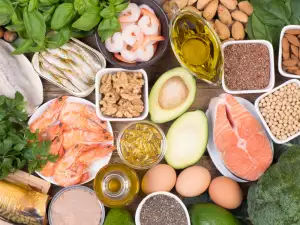

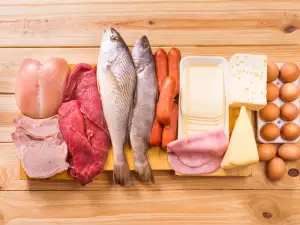


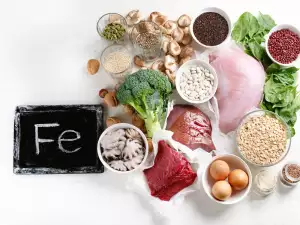





Comments